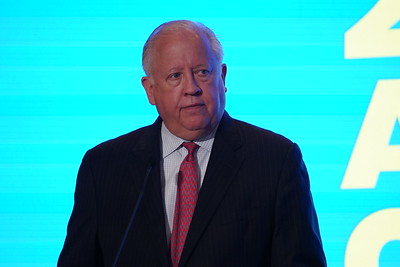Can Spain Solve the Cuba Problem?
By all accounts, Spain wants to bring change to the European Union’s Cuba policy. In so doing, it is tackling a foreign policy challenge that often sheds more heat than light.
Day two of the 26th Annual CAF Conference, jointly organized by the Inter-American dialogue, CAF-Development Bank of Latin America and the Caribbean, and the Organization of American States on June 1-2, 2023, began with introductory remarks by Ambassador Thomas Shannon, the co-chair of the Inter-American Dialogue, who offered five rules for diplomacy in the 21st century. The first rule, he said, is that the enemy is the status quo – not China, Russia, Iran, or any other external actor. In this regard, part of the challenge for policy discussions such as the one offered by this conference is to ensure that we are not sitting on the status quo but reaching for something beyond that, Shannon added.
The second rule is that all politics are social. It is about inequality, poverty, social inclusion, and expanding the realm of liberty, with liberty understood as development and increasing opportunities for all. The third rule, Shannon said, is that values matter. “These values are not narratives constructed by governments,” he added. “They are values constructed by peoples, and they reflect our commitment to fundamental freedoms and human rights.”
Shannon’s fourth rule for 21st-century diplomacy is that societies and cultures, more than governments and states, will drive politics and define relations among countries. This represents a huge opportunity, because it allows us to reach beyond government to the societies where we come from. Ultimately, the Inter-American Democratic Charter and institutions like the OAS are not about the member states or about governments, but about the people.
The final rule is that legitimacy will increasingly be determined by outcomes. Institutions and elections are important, as are peaceful transfers of power, Shannon said, but democracy must also deliver the goods, or people will opt for an alternative form of government. Beyond institutional structures and moral purposes, democracy must produce states that have the capacity to deliver what the people are demanding. If not, he warned, voters will look for other solutions.
By all accounts, Spain wants to bring change to the European Union’s Cuba policy. In so doing, it is tackling a foreign policy challenge that often sheds more heat than light.
When Haiti was struck by a devastating earthquake, the administration of U.S. President Barack Obama quickly absorbed the depth of the tragedy and necessity of a robust U.S. response. Unless the U.S. adopts a proactive role, Haiti’s fragmented political landscape threatens to deteriorate into a political vacuum that will compound the current crisis.
Politics is swirling everywhere. Such are the ways of democracies, especially when oppositions come alive and defeat or threaten incumbents.
 CAF - Development Bank
CAF - Development Bank